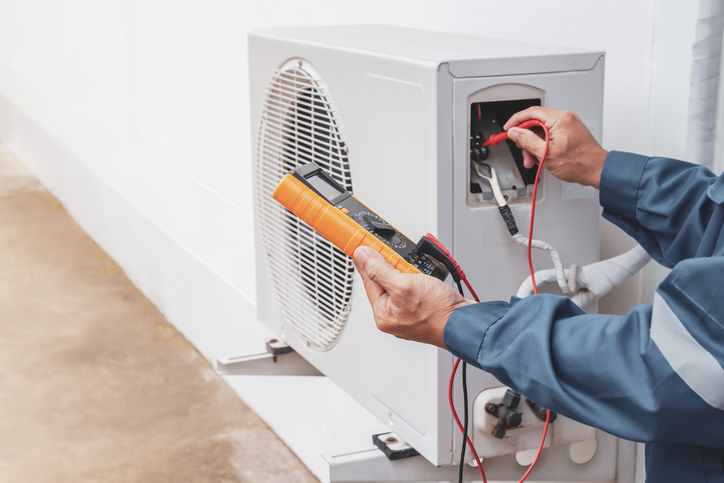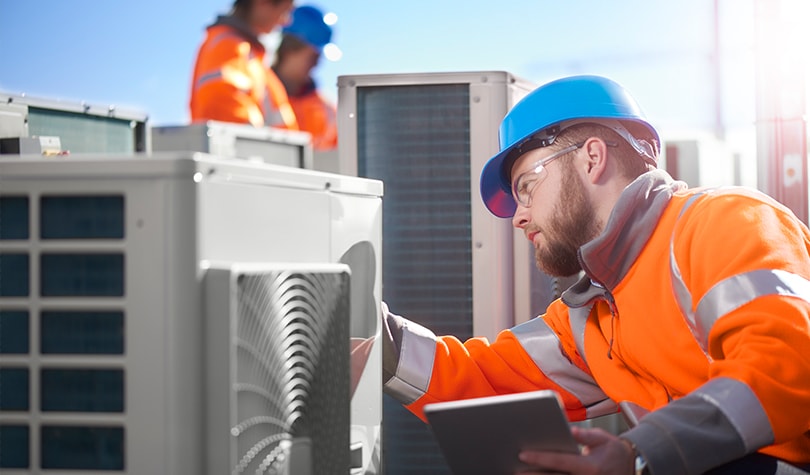Fix broken Air conditioner in peak season — what to do first
Understanding Heating And Cooling: Common Issues of Air Conditioner Systems and Their Solutions
HVAC systems play an essential role in maintaining interior comfort. However, air conditioning devices frequently experience typical issues that can impede their performance. Issues like insufficient cooling, uncommon sounds, and constant cycling can indicate deeper mechanical problems. Additionally, water leakages and unpleasant odors can endanger air top quality. Recognizing these obstacles and their options is very important for reliable maintenance. What steps can homeowners take to assure their air conditioner systems operate efficiently?
Inadequate Air Conditioning Efficiency
What causes insufficient air conditioning efficiency in an a/c system? Numerous aspects can add to this problem. A common reason is a dirty air filter, which limits air flow and decreases cooling down efficiency. In addition, reduced cooling agent levels due to leakages can impede the system's capability to absorb heat effectively. Another prospective issue may develop from a malfunctioning thermostat, leading to incorrect temperature level analyses and improper air conditioning cycles. Blocked or dirty condenser coils can likewise stop heat dissipation, more affecting efficiency. Finally, ductwork problems, such as leakages or blockages, can lead to irregular cooling throughout an area. Determining these troubles quickly is essential for preserving optimal heating and cooling function and making sure a comfy indoor environment. Routine upkeep and evaluations can aid reduce these problems and boost the system's overall effectiveness.
Uncommon Noises Originating From the A/c Unit
A selection of uncommon noises originating from an AC unit can indicate underlying concerns that call for focus. Usual audios include rattling, which might suggest loosened elements or particles within the unit. Hissing noises often indicate refrigerant leaks, endangering the system's efficiency. A grinding audio might indicate damaged bearings or electric motor concerns, while a shrill squeal could signal an issue with the compressor or a sliding belt.
Each of these sounds functions as a warning indicator that something might be amiss, possibly bring about even more significant damages if not dealt with promptly. Home owners should prevent overlooking these auditory cues and consider consulting a certified HVAC technician for medical diagnosis and repair service. Prompt treatment can not only recover performance but likewise extend the life expectancy of the unit. AC repairman. Recognizing these sounds as signs of problem is vital for preserving peak air conditioning performance
Frequent Biking On and Off
Constant cycling on and off can indicate ineffectiveness or malfunctions within a HVAC system, typically referred to as short-cycling. This problem can cause boosted power usage and may trigger unnecessary endure the device's elements. Numerous aspects can add to this trouble, including a poorly sized air conditioning device, a malfunctioning thermostat, or dirty air filters. When an air conditioner unit is as well large for the area, it cools down too rapidly, triggering it to cycle frequently without properly dehumidifying the air. If the thermostat is faulty, it might incorrectly signify the unit to switch on and off. Additionally, obstructed or unclean air filters can restrict airflow, triggering the system to function harder and cycle much more typically. Addressing these issues promptly is important to boost efficiency, lengthen the lifespan of the HVAC system, and keep optimal interior comfort.
Water Leaks and Drain Issues
Water leakages and water drainage problems can present considerable challenges for a/c systems, resulting in possible damages and inefficiencies. These issues frequently stem from stopped up condensate drains pipes, which stop water from draining properly and can cause overflow. Additionally, damaged drainpipe pans or incorrect setup might aggravate these leakages, triggering water to accumulate in unwanted areas.
Normal upkeep is important to protect against such problems; ensuring that condensate lines are clear and drainpipe frying pans are undamaged can reduce the threat of leaks. Property owners should consistently check for indicators of dampness around the system, as very early detection can stop more substantial damage. In cases where leakages are identified, instant activity is required, which might include removing clogs or replacing damaged components. Addressing water leaks and water drainage issues not only protects the cooling and heating system yet likewise preserves indoor air quality and convenience.
Bad Smells and Air High Quality Concerns
Bad smells emanating from cooling and heating systems can indicate major air quality issues. Usual resources of these unpleasant scents include mold, mold, or microorganisms development in the ductwork, frequently as a result of moisture buildup. If the system has an visit here undesirable, stuffy smell, it might signify that the air filters are blocked or that there wants ventilation, enabling contaminants to circulate. In addition, a burning odor might recommend electrical problems or overheating parts, calling for prompt focus.
Homeowners should routinely replace air filters and schedule regular upkeep to assure peak air quality. Making use of an air cleanser can likewise help remove smells and improve interior air top quality. If odors linger in spite of these measures, professional evaluation and cleansing may be essential to determine and settle underlying problems. ac fix. Understanding of these odors is important, as they can influence health and wellness and convenience in indoor atmospheres

Frequently Asked Concerns
Exactly how Commonly Should I Schedule Air Conditioning Maintenance?
It is recommended to schedule air conditioning maintenance a minimum of when a year, preferably prior to the cooling season starts. Routine assessments can help identify concerns early, ensuring efficient operation and lengthening the lifespan of the system.

What Is the Typical Lifespan of an Air Conditioner System?
The ordinary life-span of an a/c system normally ranges from 15 to twenty years. Variables such as upkeep, usage patterns, and environmental problems can significantly influence this period, affecting overall efficiency and performance in time.
Just how Do I Pick the Right Dimension AC Unit for My Home?

What Are the Indicators My Air Conditioning Device Demands Substitute?

Can I Set Up an AC Unit Myself?
While installing an AC system oneself is possible, it needs technological expertise and correct devices. AC repairman. Many individuals might encounter difficulties with installation, potentially resulting in inadequacy or security hazards, making professional support suggested for suitable results
Final thought
In recap, recognizing common cooling and why not look here heating troubles and their remedies is crucial for maintaining reliable air conditioning system efficiency. Addressing concerns such as poor air conditioning, unusual sounds, frequent biking, water leaks, and undesirable odors can considerably boost interior comfort and air top quality. Routine maintenance, consisting of filter modifications and timely repair services, plays a significant function in protecting fix air conditioner against these issues. By remaining aggressive, homeowners can guarantee their heating and cooling systems operate successfully, eventually lengthening the life expectancy of their cooling devices.